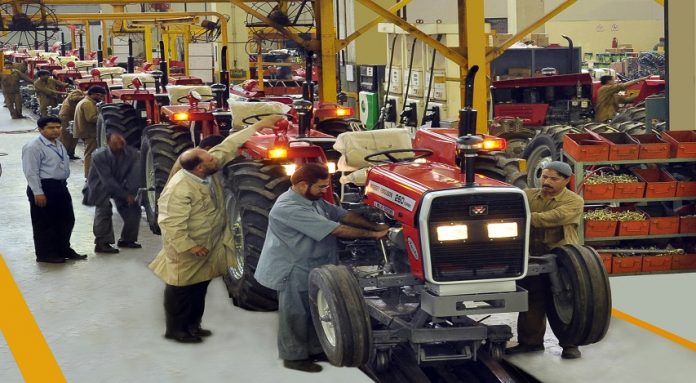- ‘There is no point in paying sales tax directly to govt in a given month and subsequently claim refund in the following month’
ISLAMABAD: The tractor manufacturers have urged the Federal Board of Revenue (FBR) to reduce the refund claims by eliminating general sales tax (GST) at the import stage.
“The abolishment of GST will give the local tractor industry a much-needed sigh of relief,” said Al-Ghazi Tractors Ltd Chief Executive Officer Mohammad Shahid Hussain in a statement. “The industry has been requesting the abolishment of GST on completely knocked down (CKD) components imported by original equipment manufacturers (OEMs) for local assembly of tractors, as there is no point in paying sales tax directly to the government in a given month and subsequently claim refund in the following month.”
It is to be noted that currently, the output sales tax is chargeable on the supply of tractors at the rate of 5pc, as against 17pc payable as input tax while purchasing components, local and imported.
Shahid highlighted that the sales tax refunds are not being released in a timely manner i.e. three days from the claim sanctioned. Instead, he added, refunds are released in tranches after a delay of several months.
“As of today, almost Rs5 billion of the tractor industry is stuck with the FBR, which is resulting in huge liquidity challenge and considerable financing cost,” he added.
Shahid stated that vendors of the tractor industry play an important role in the continuity of timely supply of finished tractors to the end users, which keeps the market going.
However, he added, due to extraordinary delay in releasing sales tax refunds by the government, the industry is now at the snapping point and is unable to pay the vendor industry in a timely manner for continuity.
“Removing the GST anomaly will not only result in strengthening the engineering industrial base but will also help the farmers through low cost of financing, thereby increasing the productivity which would result in higher agricultural output, GDP, and tax collection,” he concluded.

























Very fair demand.